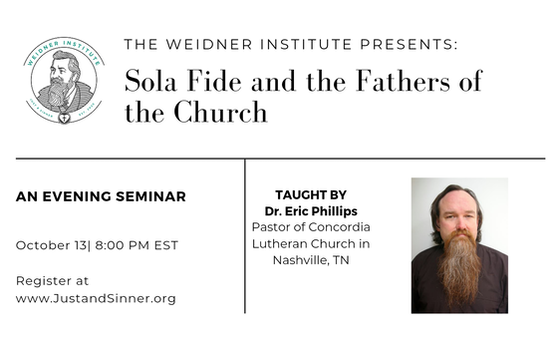|
Description:
Martin Luther, and the Reformation in general, famously insisted that human beings are saved by the work of Christ “by grace alone (sola gratia), by faith alone (sola fide).” The insistence on sola gratia was already an old one, especially in the Western Church, having been championed by St. Augustine against the Pelagians, and so on that point the Reformers simply had to point the wayward Semi-Pelagian teachers of their own day back to that great Doctor of the Church. Of course that was a lot harder than it sounds, but sola fide was a harder sell, because although Scripture teaches “that one is justified by faith apart from works of the law” (Rom. 3:28), and the Fathers followed suit, Scripture also teaches that God “will render to each one according to his works” (Rom. 2:6), and the Fathers said that too. How to combine both teachings in such a way that the first statement (the Gospel) cannot be undermined and taken away by the second, is one of the hardest and most important problems in Theology, and the most characteristic and important contribution of the Reformation—particularly in its pure Lutheran form. But this can make it seem as if it was a new idea in the 16th century, contrary not only to the teachings of the Late Medieval Church, but also the Ancient Fathers. This is an accusation that the Reformers were quite keen to disprove. They were convinced, and worked to convince friend and foe, that their teachings had Patristic roots as well as Scriptural ones. If you are similarly convinced, or want to be, or even if you want to evaluate the claim from an antagonistic position, this seminar is for you. Purchase here.
1 Comment
J Katsch
3/31/2023 05:22:41 pm
Sola Fide and the Church Fathers was a fantastic lecture. Good introduction to the nuance needed to understand where the fathers were (and weren't) in line with Reformation thinking on this topic.
Reply
Leave a Reply. |
Get a free copy of Luthardt's saving truths of christianityIf you sign up here for our email list, we will send you a free PDF of Christoph Ernst Luthardt's book Apologetic Lectures on the Saving Truths of Christianity. By joining our email list, you will get updates and occasional special offers.
|






